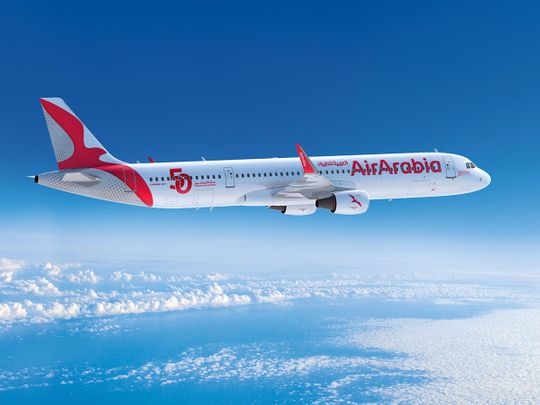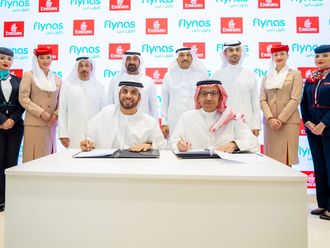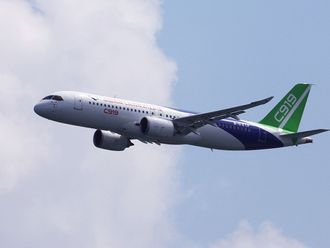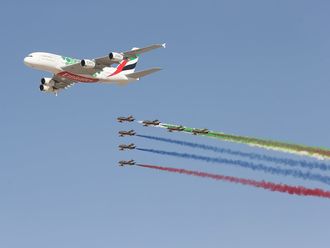
Dubai: Low-cost carrier Air Arabia reported a 756 per cent surge in its first quarter profit amid a recovery in global air travel demand.
The Sharjah-based airline reported a net profit of Dh291 million for the first three months ending March 31, 2022, compared to Dh34 million registered in the year-ago period. In the same period, the airline posted a turnover of Dh1.12 billion, a 97 per cent increase compared to the first quarter of last year.
“The strong performance we witnessed last year continued in the first quarter of 2022 and was supported by higher customer demand for Air Arabia’s value driven product as well as rigid cost control measures that the airline took since the start of the pandemic,” said Sheikh Mohammad Al Thani, Chairman of Air Arabia.
“The financial and operational results achieved in the first quarter were backed by the continuous recovery in demand for air travel,” said Al Thani.
The airline flew more than 2.4 million passengers between January and March 2022 across the carrier’s five hubs, an 86 per cent increase compared to a total of 1.3 million passengers carried in the first quarter of last year. The airline’s average seat load factor – or passengers carried as a percentage of available seats – during the first three months of 2022 stood at 79 per cent, up 4 per cent compared to the same period last year.
“We have continued with our network expansion strategy in the first quarter of this year by adding new routes and new frequencies across all operating hubs as well as continuing with preparations for the launch of our new ventures in Armenia and Pakistan,” said Al Thani.
Air Arabia added four new routes from its operating hubs in the UAE, Morocco, and Egypt in the first three months of 2022 and fully resumed its city check-in across the UAE. Air Arabia Group also unveiled the brand identity of its latest two ventures ‘Fly Arna’ and ‘Fly Jinnah’ in Armenia and Pakistan respectively. Both joint ventures are expected to be operational by mid-year.
“In addition to the lasting impact of COVID-19 on global aviation, the industry continues to face geo-political challenges, higher oil prices and uncertainty towards full economic recovery,” said Al Thani.
“Although all these challenges are of a changing nature, we have full confidence in the business model that we operate, the strength of the aviation industry worldwide, as well as its role in supporting regional and global economic recovery.”












